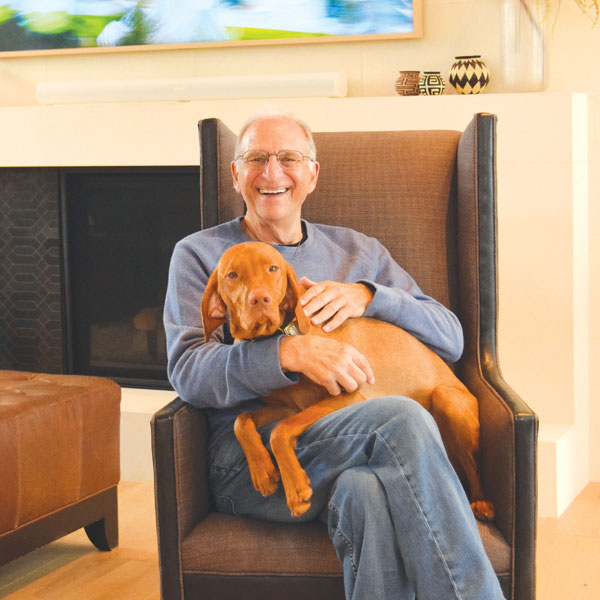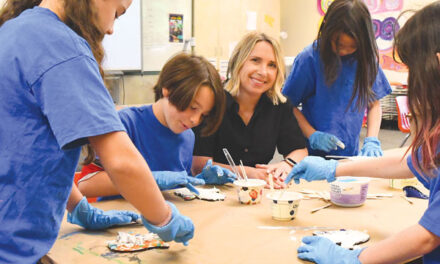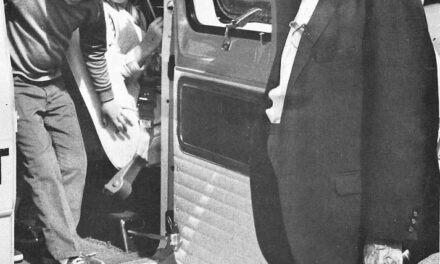Living in a 700-square-foot New York apartment, Matthew Margolis slept in the foyer and his sister curled up on the living room couch. The family had two dogs when Margolis brought home a third.
His father said the dog couldn’t stay. So Margolis slept in Central Park, the dog by his side.
“When you’re shy growing up, dogs are your best friend,” Margolis says. “I couldn’t give that up.” After three days in the park, his parents finally gave in.
That passion for canines gave Margolis, better known as Uncle Matty, his future—55 years of training more than 50,000 dogs and a life goal to save as many as he can.

“Most owners get a dog without knowledge,” Margolis says. “If you buy a house, if you get a car, you research it. People don’t do that with animals. That’s why we have so many homeless dogs in shelters.”
Margolis launched his career in Manhattan, where he opened the National Institute of Dog Training in 1968. He knew the key to success was his love of dogs. “You take your passion and make it your profession,” he says.
New York apartment living requires pet owners to walk their animals down hallways, onto elevators and down the street. Potty training is a must. Aggression is not tolerated. Barking is frowned upon. Clients lined up.
His success in New York led to an invitation from Johnny Carson’s “The Tonight Show” if he was ever in California. “I flew out the next day,” Margolis says. “I told them I could train any dog in a minute having never seen the dog.”
California was “incredible,” so he moved to Los Angeles and became a dog trainer to the stars, including Elizabeth Taylor, Cher, Goldie Hawn and Madonna. He soon became the resident dog expert on “Good Morning America,” and has appeared on the “Today” show, “20/20,” “The Oprah Winfrey Show” and CNN. He hosted a public television series, “Woof! It’s a Dog’s Life.”
Margolis has co-authored 19 books, including “When Good Dogs Do Bad Things,” “The Ultimate Guide to Dog Training” and “Grrr!,” on understanding and preventing aggression.
Aggression is one of his specialties. “It’s not about the pit bulls,” Margolis says. “It’s about animals who are pre-disposed to being aggressive. Whether it’s breeding, improper ownership, lack of socialization.
“If your dog growls at you over food, over toys, he’s warning you. People don’t see the signs. It’s a lack of knowledge. People treat them like a baby. Nobody gave birth to a dog.”
Margolis’ training begins in the home, not a group class, because problems are in the home—peeing, chewing, barking, digging, lunging. “You can’t have a one-size-fits-all approach,” he says.” Would you put a kindergartener and a junior high school student in the same class? Of course not.”
He designs a customized approach based on a personality test that assesses the dog’s temperament. Is the canine responsive, aggressive, nervous, shy, sedate, stubborn?
Next, Margolis ventures to different pet-friendly places. “McKinley Park, Lowes, Home Depot, Green Acres,” for example. “Because if you don’t get your dog out in the world, he’s unsocialized. A lot of people want to sit in a restaurant with their dog.”
Treats are not part of Margolis’ training method. “The dog chews the furniture, he pees in the house. Why would you give your dog a treat? You’re rewarding him for bad behavior.”
Instead, the reward is love, praise and affection. Margolis believes there is never a good reason to hit, punish or scream at a dog.
Many people don’t seek training due to the expense. A small dog can cost $1,000 a year for food, veterinary care, grooming—a big dog $1,200 to $1,300 a year, he says. “On average, over 10 years, you spend $12,000 to $15,000. You train a dog once in your life.”
Should owners get pet insurance? “Of course, they should,” he says. “You have car insurance, home insurance.” A surgical procedure can cost $2,000 or more. People can’t afford that, so they give up their dogs.
Margolis, who now lives in Placerville, has clients in Sacramento, Arden, Roseville, Rocklin, Elk Grove, Land Park, Folsom and beyond. “The people who hire me want the best for their dog.”
But love is not enough, he says. “Why are all these dogs in the shelters? Lack of training. Because people didn’t want to take the time to learn about animal behavior and educate themselves.
“You don’t get rid of the dog, you get rid of the problem.”
For information, visit unclematty.com.
Cathryn Rakich can be reached at editor@insidepublications.com. Follow us on Facebook, Twitter and Instagram: @insidesacramento.















